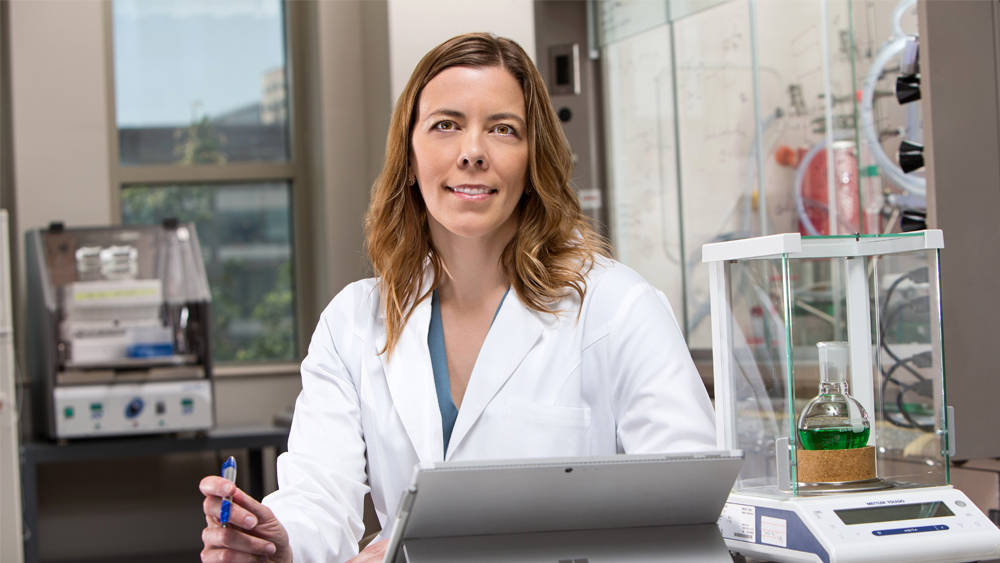
Dr. Melissa Grunlan’s contributions to the biomedical engineering community have been recognized by the American Chemical Society (ACS), which named her as a 2019 fellow.
The award recognizes members for outstanding achievements in and contributions to science, the profession and the society. Grunlan, professor and holder of the Charles H. and Bettye Barclay Professorship in Engineering in the Department of Biomedical Engineering at Texas A&M University, said receiving the recognition is an honor and it is especially meaningful as several fellows have served as mentors to her during her career.
“Since becoming an ACS member over 20 years ago as an undergraduate student, the society has been an immense asset to my scientific and professional growth,” Grunlan said. “I am humbled to be part of this group of individuals whose research and service contributions have made lasting impacts."
Grunlan’s research is focused on regenerative medicine, specifically to develop tissue engineering scaffolds that can help heal orthopedic tissues.
“By improving the material properties and thus functionality of scaffolds, we can improve the outcomes of tissue regeneration,” Grunlan said.
Grunlan said she thinks ACS fellows have an obligation to both continue to make scientific contributions as well as elevate others to do so.
“As an ACS fellow I want to carry on my efforts to provide opportunities to students and young professionals to showcase their work,” Grunlan said. “As well as to have opportunities for professional development, including taking on leadership roles.”
Other projects in Grunlan’s lab have included production of coatings, hydrogels, elastomers and porous foams from “hybrid” systems based on combining inorganic and organic polymers. Her projects include the development of self-cleaning membranes for implanted biosensors and clot-resistant coatings for blood-contacting devices.
Another program that allows Grunlan to give back to the biomedical engineering student community is Texas A&M University’s Presidential Impact Fellow program, which was established to recognize rising stars in their respective fields. Fellows embody the university’s commitment to advancing knowledge through transformational learning, discovery, innovation and impact.
Grunlan said the program has been instrumental in helping her mentor students.
“To date, I have advised over 60 undergraduate students in research in my lab,” Grunlan said. “Many of these students have co-authored research articles in journals, written theses, presented their work at conferences and gone on to earn advanced degrees. The training and guidance that these students receive from their graduate student mentors is an invaluable asset.”